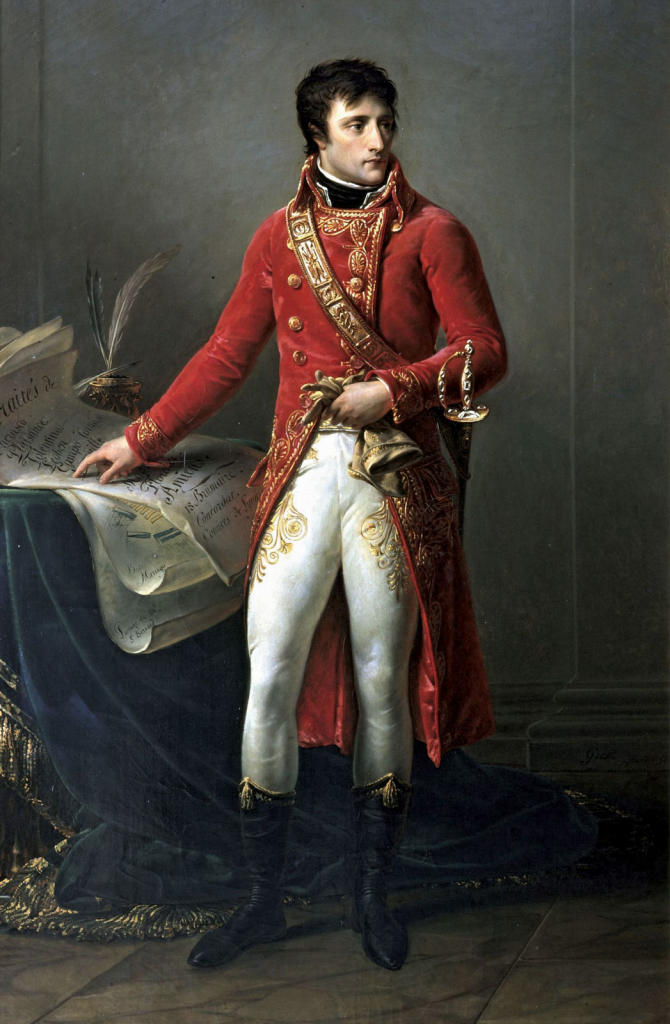What made Napoleon so fast? Kriegsspiel shows us how.
This Pub Battles Variant simulates a more realistic command experience.
I had a great time running and playing CPXs and Kriegsspiels this year at Origins. One thing that really stood out to me was how much like a video game it was. With wargames, we usually have the luxury of slowing down and pondering carefully over tricky moves and situations. Not so in Kriegsspiel. It is much more true to life. Slow periods of nothing interrupted by lightning strikes of panic and scrambling.
When a critical report comes in, the clock is ticking. What should you do? How should you respond? Who needs new orders? Where should you send them? You have 2 min to answer all of these questions and write a new clear and concise order. Can’t do it that quick? Then you just missed your chance to respond first. Can you have it together by the next 2 min turn before couriers go out again? How many turns will it take you?
Napoleon was very quick. He was often 1 step ahead of the enemy. How did he pull this off? Something interesting I learned about Napoleon, was that he often wrote orders in advance. During the periods of nothing and ‘boredom’, he spent his time thinking ahead. What are the key decision points coming up? How will the enemy respond to your moves? What are the possibilities? Napoleon would then write out orders for several different enemy reactions in advance, already written to the commands they need to go to. All he needed to do is pick a stack and hand to the couriers. The thinking, decision and order writing was already done. Boom, your troops are off and running almost instantly.

Our play test group has often discussed the Alter Rolls in Pub Battles. This is the most crucial way to influence a battle. Much better than the usual +1 mod to combat rolls. This affects timing. It is a shame that such a key element in the game is left to a simple die roll. Make it or break it? We’ve often discussed ways of expanding this beyond a die roll. Instead of a leader rating, it would be much better if all the leaders were the same. Your rating would instead be determined by your skill as a player but how?
After pondering the Kriegsspiel model, we have a new optional rule on this to try:
Rather than a die roll and only getting to roll once per turn for Alters, use the following rules:
Every HQ can attempt to Alter the sequence every chit pull IF that HQ has not moved yet in the turn.
There is no die roll. There can only be 1 Alter per Chit Pull. (excepting ties)
The first HQ that announces its Alter gets to do it. All other fail.
You must announce the Command and the type of Alter. For example:
“First Corps, Delay”
“Eleventh Corps, Jump”
You must say it clearly and discernable. No mumbling.
Whatever you say, you must do. You can’t blurt something random out and then decide what you really want to do later.
In a tie, BOTH HQs Alter. Roll a die to determine which goes first.
You can Jump if your Chit was pulled. This prevents another command from Jumping ahead of you, IF you say it first.
Most of the play testers hate this rule. It doesn’t work for solitaire games. They prefer deep, thoughtful analysis to rapid, twitch style video games. That’s fine. That’s why this is an optional rule.
However, consider this: You have all the time in the world to thoughtfully analyze what you should do during the turn and before the Chit Pull. Do you planning ahead of time, like Napoleon did. When the time comes, be decisive and strike quickly.
For those wargamers that want ‘more realism’, I’d argue this is it! This puts you in the mindset of a commander. It literally starts training your mind to think and behave like a commander. Playing this way will teach you good leadership skills and habits.
Even if you don’t like the idea, I’d urge you to find an opponent and at least give it a try. Don’t knock it until you try it. With a little practice, you may find it is easier than you think. It also adds a lot of tension and fun!

I’ve played this way and it is great. I’ve played it solitaire as well, and it works as well. You only have one option per turn. Lots of fun decision making.